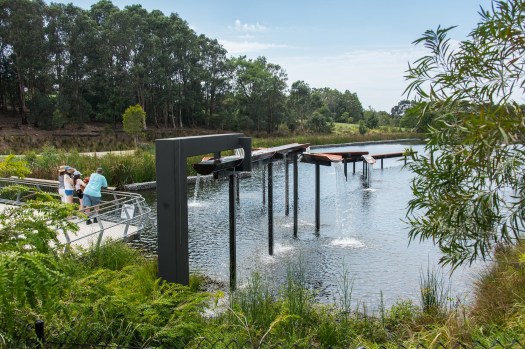By Staff Writers
Sydneysiders should be paying more for water as it becomes scarcer according to an environmental economist who argues that more expensive water would encourage urban households to use it more efficiently.
Professor Quentin Grafton, from the Crawford School of Economics and Government at ANU, says water should be priced on a sliding scale so that as the volume of water in dams goes down, prices go up, and vice versa.
“We saw with petrol that as prices went up, demand went down. People bought more fuel efficient cars and drove less. We propose a similar approach for the price of water,” he said.
In Sydney Water: Pricing for Sustainability, Professor Grafton and ANU colleague Dr Tom Kompas found that current water prices would be inadequate to prevent Sydney reaching critically low water storage “should there be a low rainfall period similar to what occurred in 2001-2005”.
The researchers suggest a trigger point for price increases or decreases, depending on the volume of water in the catchment. Once the dam levels reach the trigger level, prices would be adjusted to balance supply and demand.
Professor Grafton suggests the additional revenue from the water charge could be used for new water infrastructure for cities.
The initiative would also mean that unlike the current restrictions, there would be no restriction on how the consumer chose to use their water. “If a person valued watering their garden more highly than say, using their dishwasher, they could choose to do that. It’s actually a more flexible conservation approach.”
An independent pricing regulator would set the sliding price/volume scale, and also address equity issues for less privileged consumers.
“It isn’t the single answer to the water crisis. But it is a potential initiative which could be put in place quite quickly to mitigate the supply problem. Sydney will be facing a serious crisis in four years or less if weather trends continue as they have since 2001. We’re facing a new challenge and we need to explore new options to maintain access to this basic human requirement,” Professor Grafton said.
Comment below to have your say on this story.
If you have a news story or tip-off, get in touch at editorial@governmentnews.com.au.
Sign up to the Government News newsletter
Most read
Scathing report finds little has changed at PwC
Qld council welcomes progress on massive battery system
Inquiry to consider how federal govt can address councils’ sustainability issues
‘Local’ procurement turns out not to be so local, committee hears
Another report finds local government falling down on cyber security

